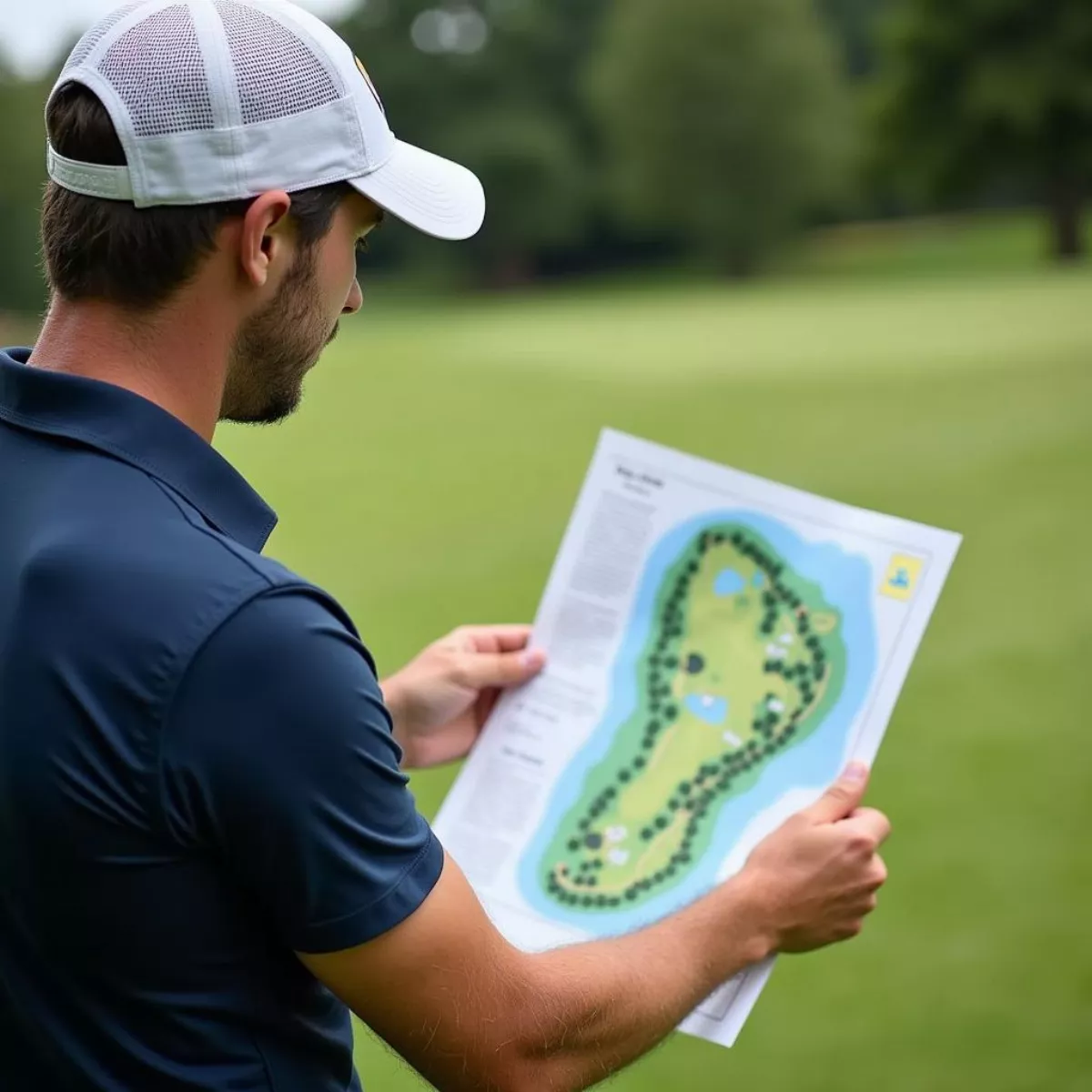Golf is a sport rich in terminology that can sometimes confuse newcomers and even seasoned players alike. Among these terms, one that frequently appears and holds significant importance is “birdie.” But what is a birdie in golf, and why is it so crucial for improving your game? In this comprehensive guide, we will explore the concept of a birdie, its significance in scoring, strategies to achieve it, and how it can influence your overall performance on the course. By the end of this article, you will have a thorough understanding of what a birdie in golf entails and how to incorporate this knowledge into your golfing repertoire.
 The Definition of a Birdie in Golf
The Definition of a Birdie in Golf
What is a birdie in golf? Before diving into the intricacies of what a birdie in golf is, it’s essential to grasp its basic definition. In golf, a birdie refers to completing a hole one stroke under par. For example, if a hole is designated as a par 4, scoring a 3 on that hole constitutes a birdie. This achievement not only boosts your score but also demonstrates a high level of skill and consistency in your game.
Par and Its Importance
To fully understand what a birdie in golf represents, it’s crucial to comprehend the concept of par. Par is the number of strokes an expert golfer is expected to make on a specific hole. It serves as a benchmark for scoring and varies depending on the length and difficulty of the hole. Holes are typically par 3, par 4, or par 5. Achieving scores relative to par, such as bogeys, birdies, or eagles, helps golfers assess their performance in relation to the course’s standard.
Differentiating Birdie from Other Scores
Understanding what a birdie in golf is also involves distinguishing it from other scoring terms. For instance, an eagle is two strokes under par, while a bogey is one stroke over par. Recognizing these differences is vital for accurately tracking your progress and setting realistic goals during a game.
The Significance of Achieving a Birdie
Achieving a birdie in golf is a commendable feat that can significantly influence your overall score and morale. Let’s delve into why scoring a birdie is so impactful.
Score Improvement
First and foremost, scoring a birdie directly improves your total score. Since it is one stroke under par, consistently making birdies can dramatically lower your overall score, making it easier to compete and win in tournaments or casual games.
Boosting Confidence
Furthermore, successfully making a birdie enhances your confidence. Knowing that you can finish a hole below par reinforces your belief in your skills and abilities, which can positively affect your performance on subsequent holes.
Strategic Advantage
Moreover, birdies offer a strategic advantage. Understanding how to navigate a course to achieve birdies allows you to plan your shots more effectively, choosing the right clubs and aiming for optimal angles that increase your chances of success.
 Strategies to Achieve a Birdie in Golf
Strategies to Achieve a Birdie in Golf
Attaining a birdie requires a combination of skill, strategy, and mental focus. Here are some effective strategies to help you achieve a birdie in golf.
Mastering the Tee Shot
The foundation of scoring a birdie begins with the tee shot. Hitting a precise and powerful drive sets the tone for the rest of the hole. Focus on accuracy and distance to position yourself favorably for the next shot. Practicing your swing and selecting the right club can make a significant difference in your tee shot efficiency.
Precision in Approach Shots
Once you’ve executed a solid tee shot, the next step is the approach shot. This shot needs to land as close to the hole as possible. Mastering distance control and understanding the wind conditions are crucial for placing your ball in the ideal position to make a birdie.
Effective Putting
Putting is where many birdies are either made or lost. Developing a smooth and consistent putting stroke is essential. Practice reading the greens, controlling your speed, and improving your aim to increase your chances of sinking that crucial putt and achieving a birdie.
Course Management
Effective course management involves making smart decisions about your shots based on the layout of the course and your personal strengths. Avoiding hazards, selecting the right targets, and adjusting your strategy based on the hole’s difficulty can help you navigate the course more effectively and set up birdie opportunities.
Common Challenges in Achieving a Birdie
While the concept of a birdie in golf is straightforward, achieving it consistently can be challenging. Here are some common obstacles golfers face when attempting to score a birdie.
Golf courses vary in difficulty, with some posing significant challenges that make birdies harder to achieve. Long fairways, tricky greens, and numerous hazards can impede your progress and require a higher level of skill and strategy to overcome.
Mental Pressure
The mental aspect of golf cannot be underestimated. The pressure to perform, especially when aiming for a birdie, can lead to anxiety and mistakes. Maintaining focus, staying calm, and managing stress are essential for executing the precise shots needed for a birdie.
Inconsistent Performance
Inconsistency in your game can hinder your ability to score birdies. Variations in swing mechanics, putting accuracy, and shot execution can lead to fluctuating results, making it challenging to achieve a birdie consistently.
Tips to Improve Your Chances of Scoring a Birdie
Improving your likelihood of scoring a birdie involves honing various aspects of your game. Here are some actionable tips to help you enhance your skills and increase your birdie count.
Practice Regularly
Consistent practice is the cornerstone of improvement in golf. Regularly dedicating time to practice your driving, approach shots, and putting can lead to significant enhancements in your overall game, making birdies more attainable.
Focus on Fundamentals
Mastering the fundamental aspects of golf, such as grip, stance, and swing mechanics, provides a solid foundation for all your shots. Ensuring that these basics are in check can improve the accuracy and consistency of your play, directly influencing your ability to score birdies.
Short Game Mastery
A strong short game, including chipping and putting, is critical for achieving birdies. Investing time in practicing these areas can help you convert near birdie opportunities into actual birdies by minimizing mistakes around the green.
Analyze Your Game
Regularly analyzing your performance can help identify strengths and weaknesses. Understanding where you excel and where you need improvement allows you to tailor your practice sessions to address specific areas, enhancing your overall ability to score birdies.
Seek Professional Coaching
Professional coaching can provide personalized guidance and techniques to refine your skills. A coach can help you develop a more effective swing, improve your putting technique, and offer strategic advice to increase your birdie opportunities.
The Role of Equipment in Achieving a Birdie
Having the right equipment can significantly impact your ability to score a birdie. Let’s explore how your gear influences your game.
Choosing the Right Clubs
Selecting the appropriate clubs for each shot is crucial for achieving a birdie. Drivers, irons, and putters each have specific roles, and using the right club in the right situation can enhance your accuracy and distance control.
Customized Fitting
A customized club fitting ensures that your equipment suits your individual playing style and physical characteristics. Properly fitted clubs can improve your swing mechanics, leading to more precise shots and increasing your chances of scoring birdies.
High-Quality Golf Balls
Using high-quality golf balls that match your swing speed and playing style can enhance your performance. Golf balls designed for better control and spin can help you navigate the course more effectively, setting up birdie opportunities.
 The Impact of Weather and Course Conditions on Birdies
The Impact of Weather and Course Conditions on Birdies
Weather and course conditions play a significant role in determining how feasible it is to score a birdie. Understanding these factors can help you adjust your strategy accordingly.
Wind Conditions
Wind can greatly affect the trajectory and distance of your shots. Learning to read the wind and adjust your aim and club selection can help you maintain control and increase your chances of achieving a birdie despite challenging conditions.
Green Speed and Terrain
The speed and undulation of the greens impact your putting. Slower greens require more force in your putts, while faster greens demand precise speed control. Additionally, understanding the terrain and how it slopes can help you read the putts better, improving your likelihood of sinking birdies.
Course Layout
Each golf course has a unique layout with varying hole lengths, hazards, and green designs. Familiarizing yourself with the course layout before playing can help you plan your shots more effectively and identify potential birdie opportunities.
Psychological Aspects of Scoring Birdies
The mental game is as important as the physical aspects in golf. Here’s how your mindset can influence your ability to achieve a birdie.
Building Confidence
Believing in your ability to score a birdie can significantly impact your performance. Confidence helps you execute shots with greater precision and reduces the likelihood of mistakes caused by self-doubt.
Maintaining Focus
Staying focused throughout your game ensures that you remain aware of your strategy and execute each shot with intention. Distractions can lead to errors that prevent you from scoring a birdie.
Handling Pressure
Learning to manage pressure, especially in competitive settings, is crucial for scoring birdies. Techniques such as deep breathing, visualization, and maintaining a positive attitude can help you perform better under stress.
Common Misconceptions About Birdies
There are several misconceptions about what a birdie in golf is and how to achieve it. Let’s address some of these to clarify your understanding.
Birdies Are Only for Professionals
Many believe that birdies are exclusive to professional golfers. However, birdies are achievable for golfers of all skill levels with the right practice and strategy. Anyone can improve their game and score birdies by focusing on technique and consistency.
Birdies Are Pure Luck
While luck can play a role, especially with favorable conditions, scoring a birdie primarily depends on skill, strategy, and preparation. Regular practice and proper course management are key factors in consistently achieving birdies.
More Birdies Always Lead to Better Scores
While birdies do improve your score, it’s also essential to minimize higher scores on other holes. Balancing birdies with solid plays on all holes is necessary for overall score improvement.
 Real-Life Examples of Birdie Achievements
Real-Life Examples of Birdie Achievements
Examining real-life instances of scoring birdies can provide valuable insights and inspiration for your own game.
Iconic Birdie Moments in Professional Golf
Professional golfers often showcase impressive birdie achievements during major tournaments. For example, Tiger Woods is renowned for his ability to make clutch birdies on critical holes, significantly impacting his tournament outcomes.
Amateur Golfers’ Success Stories
Amateur golfers have celebrated numerous birdie achievements that have boosted their confidence and enjoyment of the game. These stories highlight that with dedication and practice, achieving a birdie is within reach for anyone.
How to Track and Improve Your Birdie Count
Monitoring your birdie statistics can help you identify areas for improvement and track your progress over time. Here’s how to effectively track and enhance your birdie count.
Keeping a Golf Journal
Maintaining a golf journal allows you to record your scores, including birdies, for each round. Reviewing this information can help you identify patterns and areas where you can improve.
Utilizing Golf Apps
Golf apps offer convenient ways to track your scores and birdie counts digitally. Many apps also provide analytics and insights to help you understand your performance trends and set improvement goals.
Setting Realistic Goals
Setting specific, achievable goals for your birdie count can motivate you to focus on areas that need improvement. For example, aiming to score one birdie per round can provide a clear target to work towards.
Seeking Feedback
Receiving feedback from coaches, peers, or even analyzing video recordings of your game can offer valuable perspectives on how to refine your technique and increase your birdie opportunities.
Advanced Techniques for Birdie Mastery
For those looking to take their birdie game to the next level, advanced techniques can offer additional advantages.
Shot Shaping
Learning to shape your shots, such as curving them left or right, can help you navigate obstacles and position your ball better for birdie opportunities. Mastering shot shaping adds versatility to your game, making it easier to achieve birdies in various situations.
Distance Control
Precise distance control is crucial for ensuring your approach shots land near the hole. Developing a consistent swing and practicing different clubs can enhance your ability to control the distance, setting up better chances for birdies.
Reading Greens Like a Pro
Improving your ability to read greens accurately allows you to make more informed putting decisions. Understanding the slope, speed, and break of the green can lead to more successful putts and increased birdie opportunities.
Mental Visualization
Visualizing successful birdie shots before executing them can improve your focus and execution. Mental rehearsal helps you anticipate the necessary movements and boosts your confidence in making birdies.
 The Role of Practice in Achieving Birdies
The Role of Practice in Achieving Birdies
Consistent practice is essential for mastering the skills needed to score birdies. Let’s explore how different practice methods can enhance your birdie game.
Driving Range Sessions
Regular sessions at the driving range help improve your swing mechanics and distance control. Focusing on hitting accurate drives sets a strong foundation for approaching birdies on par 4 and par 5 holes.
Short Game Drills
Engaging in short game drills, such as chipping and putting, sharpens your ability to convert close shots into birdies. Practicing these areas ensures that you can capitalize on opportunities to score under par.
Simulated Courses
Using simulated courses or playing practice rounds allows you to apply your skills in realistic settings. This type of practice helps you develop strategic thinking and adaptability, which are crucial for scoring birdies in diverse conditions.
Feedback and Adjustments
Seeking feedback from coaches or using video analysis can help you identify and correct flaws in your technique. Making necessary adjustments based on feedback ensures continuous improvement in your birdie pursuit.
Conclusion: Embrace the Challenge of Scoring Birdies in Golf
In conclusion, understanding what is a birdie in golf is fundamental to enhancing your overall performance and enjoyment of the game. A birdie represents not only a lower score but also a mark of skill, strategy, and consistency. By mastering the techniques, strategies, and mental aspects of scoring birdies, you can elevate your game and achieve greater success on the course. Whether you are an amateur looking to improve or a seasoned player aiming for higher achievements, focusing on birdie opportunities can lead to significant advancements in your golfing journey. Embrace the challenge, refine your skills, and watch as your ability to score birdies propels your game to new heights.